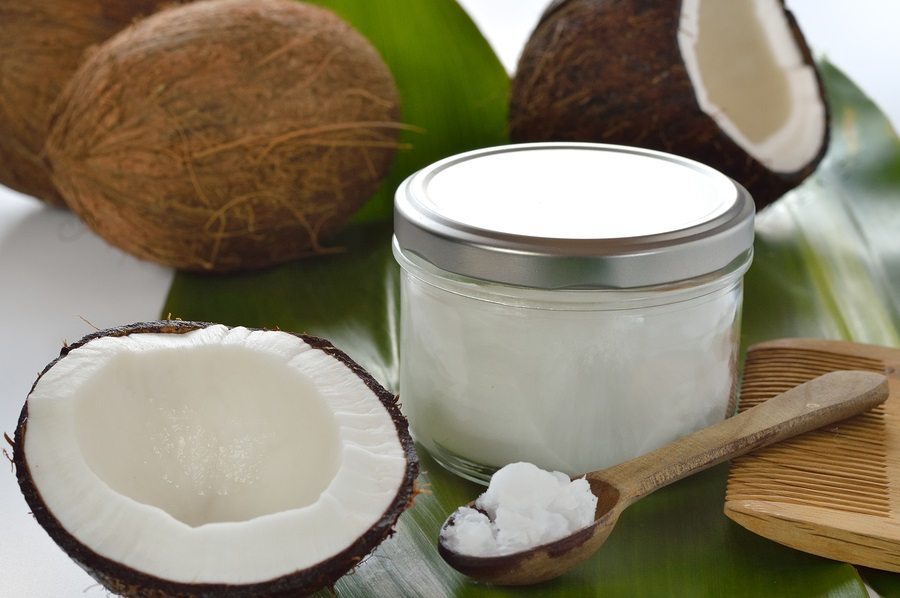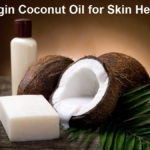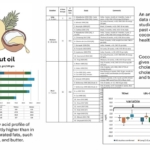 by Paul Fassa
by Paul Fassa
Health Impact News
There are many chronic debilitating conditions that modern prescribed pharmaceuticals do not handle well, if at all. Most are autoimmune diseases. One of the 90 or so autoimmune diseases is rheumatoid arthritis, which affects at least 2 million Americans, mostly women.
Under the pharmaceutical industry’s rule, mainstream medical doctors do not consider dietary solutions useful. Regardless, some have cured themselves of autoimmune diseases using nutritional supplements and dietary changes. Coconut oil should be considered a major part of both approaches.
Autoimmune diseases are caused when a misguided immune system attacks healthy cells and organs instead of pathogens, creating chronic inflammation, leading to debilitating diseases not caused by pathogens.
Rheumatoid arthritis is a difficult chronic autoimmune disease that can be troublesome, often painful, even crippling. It usually affects the joints, most commonly the hands and fingers, sometimes rendering them unusable for functioning with even minimal manual dexterity.
Whatever symptom relief is offered by pharmaceutical autoimmune disease drugs comes with the price of negative side effects, which are sometimes as bad or worse than the autoimmune disease, especially with long term use. Natural solutions can be more effective without side effects, and much less expensive too.
Study: Natural Compound with Coconut Oil Shows Promise for Rheumatoid Arthritis Sufferers
A recent study on a new anti-inflammatory antioxidant natural remedy, with the main ingredient being coconut oil, shows positive signs of being the go-to remedy for those who want relief from rheumatoid arthritis without the side effects of pharmaceuticals that are not so effective. (Study Abstract)
The 2016 study, “Anti-inflammatory and antioxidant effect of Kerabala: a value added ayurvedic formulation from virgin coconut oil inhibits pathogenesis in adjuvant-induced arthritis” is the title of a study performed in India with adult male wistar lab rats for 30 days. They were injected with carageenan to induce edema in one paw and simulate joint inflammation.
The natural compound Kerabala’s symptom results were compared with the results from indomethacine, a pharmaceutical NSAID (non-steroidal anti-inflammatory drug), by thoroughly examining and measuring many markers from skin, serum, and synovial joint fluids.
The researchers mixed and remixed Kerabala’s (CB) components according to Ayurvedic procedures over a period of 101 days.
Here are the CB ingredients: 3 percent Sida cordifolia Bark, a weed plant flower that’s common in India; 43.5 percent S. cordifolia root decoction (an extract concentrated by boiling off half the water) of cordifolia roots; 10 percent sesame oil; and 43.5 percent coconut milk.
The researchers’ customarily conservative conclusion:
During anti-inflammatory studies, low dose of CB inhibits the acute phase responses and also capable of reducing chronic inflammation of synovial joints, thus preventing progressive erosive destruction of articular cartilage. Therefore, Kerabala has the potential to be used as an anti-inflammatory or an anti-arthritic agent.
Unfortunately, an online product search for Kerabala came up empty for this reporter. And creating the compound according to its recipe is too difficult for most. The study describes it as a “novel” compound, meaning it’s new and different from traditional Ayurveda remedies.
However, its main constituent is coconut oil. And there is strong evidence of coconut oil’s efficacy for similar autoimmune maladies.
Related Application and Study of Coconut Oil for the Root Cause of Autoimmune Disease
Almost half of the above tested Kerabala formula is coconut oil. A specialist in autoimmune disease functional medical treatments, Dr. Amy Myers, M.D., cites different examples from medical literature associating microbial infections with arousing some autoimmune reactions.
Functional or integrative medicine M.D. Dr. Myers works with the body’s immune system and getting more to the source of an autoimmune malady instead of throwing pharmaceuticals at it. She is keen on virgin coconut oil’s ability to contain pathogenic microbes that could be involved with some autoimmune diseases.
Dr. Myers mentions monolaurin as a powerful natural treatment against various viruses and fungi associated with some autoimmune diseases. Lauric acid converts to monolaurin in the body, and virgin coconut oil is 50 percent lauric acid, thus coconut oil can help turn the tide on certain autoimmune diseases.
It’s estimated over 40 million Americans suffer from Candida yeast overgrowth, usually simply called candida. Leaky gut, stress, heavily processed foods of the SAD (standard American diet) and pharmaceutical antibiotics all cause this fungal microbial imbalance. Anti-fungal pharmaceutical drugs cause their share of harmful side effects. They offer little in the way of solutions.
When candida yeast colony overgrowth overwhelms the good gut bacteria, the ensuing imbalance opens the door to many autoimmune inflammatory conditions.
Candida yeast overgrowth “give off many toxins, like zymosan,” which causes inflammation that “may trigger autoimmune diseases such as rheumatoid arthritis, thyroiditis or celiac disease,” according to a report on Dr. Ronald Hoffman’s site Intelligent Medicine by functional medicine nutritionist Leyla Muiden. (Source)
Studies Confirm Coconut Oil’s Ability to Curb Candida Overgrowth
A University of Tufts animal study, “Manipulation of Host Diet to Reduce Gastrointestinal Colonization by the Opportunistic Pathogen Candida albicans” was published in the November 2015 issue of the journal mSphere.
Coconut oil fed to mice with Candida albicans occupying their guts reduced the infectious level 90 percent, greatly exceeding the results from beef tallow and soybean oil. (Source)
Study author Kearney Gunsalus, Ph.D. asserted the results as being more clinical than preventative. In other words, it should be used to help curb candida symptoms.
The potential use of coconut oil in the short term to control the rate of fungal overgrowth should not be considered a prophylactic [preventative] approach to preventing fungal infections. We want to give clinicians a treatment option that might limit the need for anti-fungal drugs. If we can use coconut oil as a safe, dietary alternative, we could decrease the amount of anti-fungal drugs used, reserving anti-fungal drugs for critical situations. (Source)
An even earlier study of polyphenolics (complex plant nutrients) isolated from coconut oil alone on arthritic rats showed strong evidence of reducing arthritic inflammation of rats. Study Abstract.
Other earlier studies indicate 3.5 tablespoons daily may do the trick of killing fungal colonies while leaving the beneficial microbiome balance of beneficial bacteria to pathogenic microbes at 85% to 15% (approximately) and restricting candida yeast to its necessary minimum.
Of course, restricting refined sugar and carbs, antibiotics, and consuming probiotic fermented foods and liquids should be part of dietary changes also. There is more on earlier studies and anecdotal reports on success with coconut oil for candida yeast overgrowth with expert advice here.
Thus, going not back-door but down to the basement to rid a major source of autoimmune disease, including arthritis and potentially others, involves heavy dosing of virgin coconut oil while improving overall diets. Despite the false propaganda claims of saturated fats causing obesity, coconut oil also actually helps rid excess fat and aides weight loss, and more.
Sources:
https://experiencelife.com/article/autoimmune-disorders-when-your-body-turns-on-you/
https://www.ncbi.nlm.nih.gov/pubmed/27878500?dopt=Abstract
https://www.ncbi.nlm.nih.gov/pubmed/24613207
http://www.amymyersmd.com/2016/03/conventional-medicine-autoimmune/
http://www.advance-health.com/coconut.html



 How the Simple High-Fat Low-Carb Ketogenic Diet Continues to Change People's Lives
How the Simple High-Fat Low-Carb Ketogenic Diet Continues to Change People's Lives New Studies Continue to Show that Coconut Oil is the Best Oil for Treating Skin Conditions and Maintaining Healthy Skin and Teeth
New Studies Continue to Show that Coconut Oil is the Best Oil for Treating Skin Conditions and Maintaining Healthy Skin and Teeth New Study Confirms Health Benefits of Coconut Oil and USDA False Claims Against It
New Study Confirms Health Benefits of Coconut Oil and USDA False Claims Against It The FDA has NOT Banned Trans Fats! Traditional Saturated Fats like Coconut Oil Continue to Shine for Alzheimer's Disease but are Condemned by U.S. Dietary Advice
The FDA has NOT Banned Trans Fats! Traditional Saturated Fats like Coconut Oil Continue to Shine for Alzheimer's Disease but are Condemned by U.S. Dietary Advice The Evidence of Coconut Oil's Superiority Over Drugs in Destroying Pathogens Continues to be Published in Peer-Reviewed Journals
The Evidence of Coconut Oil's Superiority Over Drugs in Destroying Pathogens Continues to be Published in Peer-Reviewed Journals
3 Comments